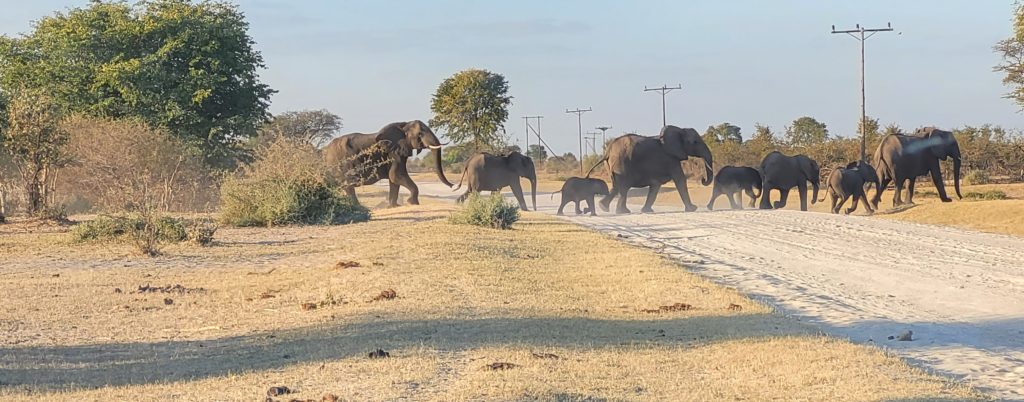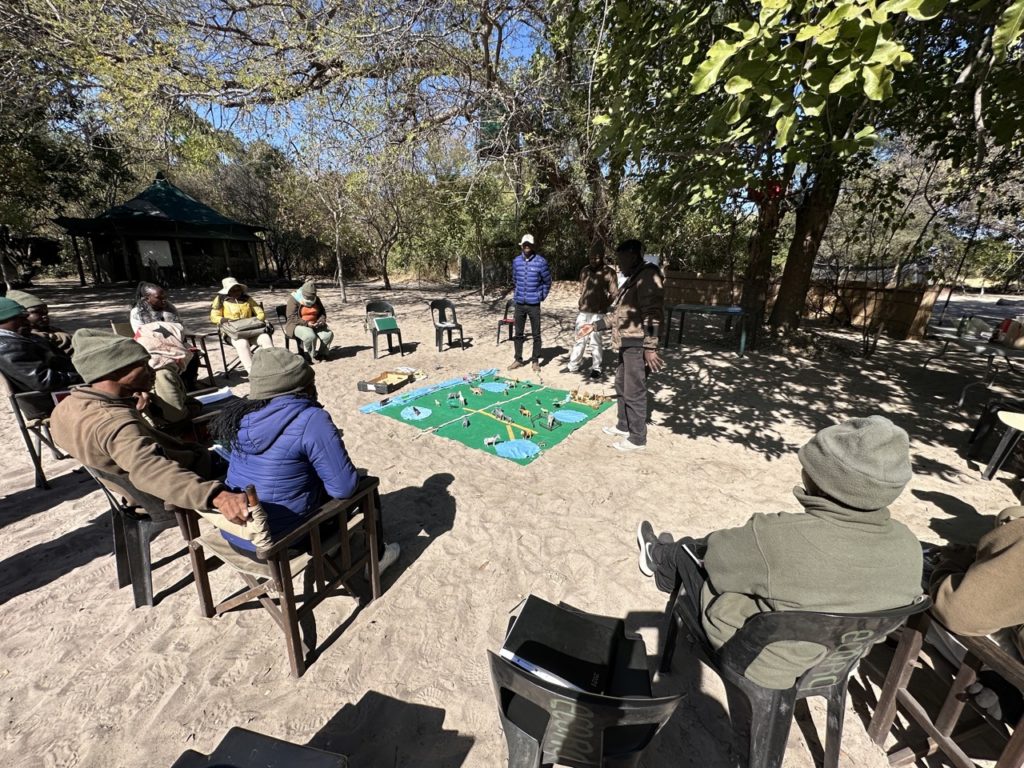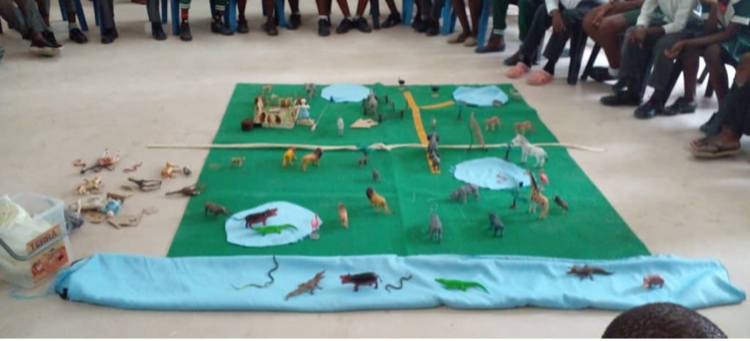Fostering coexistence in the Okavango Delta of Botswana
Daniel Sekunja whoops, yells, and bangs sticks in front of a captivated audience. He’s reenacting an elephant encounter from his youth, employing the best tactic he knew – make noise—to deter a trio of elephants from destroying his family’s crops. The intelligent elephants, wary of humans and their often-violent responses, viewed his antics as a threat and charged. Daniel narrowly escaped with his life by diving into a downwind bush. His family’s livelihood was trampled.

Botswana has the largest population of free-roaming elephants in the world. Based on the 2022 aerial survey of the seasonal distribution of elephants in the Kavango-Zambezi transboundary region, approximately 150,000 call Botswana home. The survey estimated 227,900 African Savanna elephants throughout this region, which represents more than 50% of the total remaining population of Savanna elephants and is an increase from the 2016 IUCN African Elephant Status Report. Photo credit: Elisa Osborne
Mr. Sekunja’s elephant confrontation story is surprisingly typical in the Okavango Delta of Botswana, where people and elephants compete for water, food, and space. Even if an individual hasn’t been charged directly by an elephant, he or she knows of someone who has, and the threat looms large. In the dry season, when elephants shelter in the Delta, there can be just as many elephants as people.

Mr. Sekunja works for Ecoexist, an NGO based in the Okavango Delta that is committed to reducing elephant-people conflict and fostering coexistence. Their mission is to conserve elephants by supporting the people who live with them. Mr. Sekunja’s story is part of the group’s “Living with Elephants” community program. Villagers tell their stories of coexistence, including their challenges and solutions to sharing resources and space. It was during one of these programs that Mr. Sekunja shared his epiphany from his confrontation – that he needed a better method then whooping and hollering to protect his family’s crops.
Ecoexist has partnered with the International Programs Office of the U.S. Forest Service to expand and refine their curriculum for trainers like Mr. Sekunja and to incorporate active learning that considers different learning styles in the classroom. The suite of materials includes wildlife flash cards and a landscape simulation exercise.

In February 2023, Ecoexist community officers test piloted the first learning module on Coexistence in Nature between People and Wildlife at 14 schools (11 primary and 3 secondary), presenting to 485 students and 79 teachers. Feedback from the pilot delivery was strongly positive. Teachers indicated that the lesson goals—identifying essential components of human and wildlife habitat; understanding the many roles of elephants within the Okavango Delta; recognizing the causes and potential solutions for human-wildlife conflict—were consistently met at each school talk. Among teacher respondents to feedback surveys, 10 of 12 replied that their view of elephants had been changed by the lesson and wrote that their changed view was due to understanding that elephants “have advantages”—elephants are seed dispersers and firewood creators!—and from learning about “how to survive with elephants”.


Mr. William Moniwe, an Ecoexist Community Officer also says that community and school outreach is working.
Now the community wants to “try dealing with elephants in a good way, one that benefits both the people and elephants,” said Mr. Moniwe.
The Okavango Delta is the single largest tourist center in Botswana and a major employer. Ecoexist supports an “elephant economy” as part of its community outreach by encouraging people to improve their livelihoods with elephant-themed commerce. In the process, communities reframe their outlook on elephants, from danger and loss to opportunity.
Learn more about Ecoexist here.